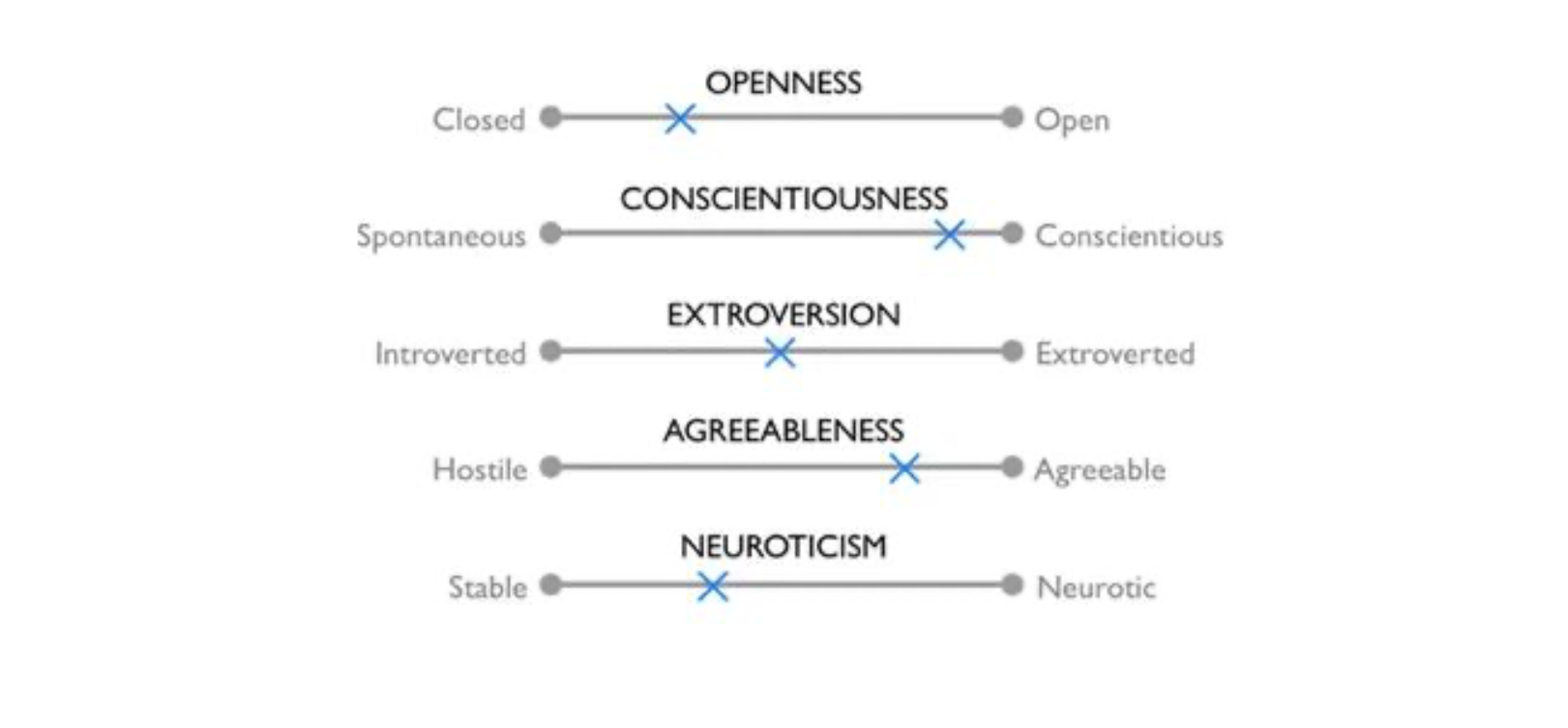Why consider a hiring test in your pre-employment phase?
A hiring test is one of the most objective ways to predict job performance and test a candidate for company fit. It consists of using a set of assessments (including personality and logic reasoning assessments) to evaluate candidates on a wide range of aspects like cognitive ability, critical thinking skills, personality type, and motivation.
Personality tests
Personality is made up of unique traits, characteristics, and psychological preferences. And while many things influence us in our day-to-day-lives, personality is a key force behind our habits, attitudes, and behaviours. It’s unsurprising, then, that the scientific community has proved how personality tests can be a strong predictor of job performance.
Increasingly, companies are giving candidates a personality test to complete as part of the hiring process. Based on the results, recruiters can get a quantifiable value for traits that are usually hard to measure, like customer service aptitude or an applicant’s ability to cooperate and work in a team.
However, an important thing to flag here is that if the assessment isn’t psychometrically validated for hiring and selection, then you risk making a poor, subjective hiring decision, or worse, getting into a tough legal spot.
This is why it’s critical to pick a personality assessment that’s backed by the scientific community. Furthermore, using a personality test should always be carefully considered, especially, with regards to where in your hiring process it sits.
For instance, some companies use personality assessments as a pre-employment screening step, enabling them to quickly identify the best candidates to move forward with for interviews.
Ultimately, think of a personality test as a part of your overall hiring strategy.
Which personality test to choose?
When it comes to personality tests, there’s no shortage of them. However, the quality, reliability, and validity vary, and this is where you need to be really careful. There are many tests on the market that are neither reliable or valid, especially for hiring purposes. Such tools should be avoided at all costs.
On top of considering whether an assessment is sufficiently valid, you have to verify that it’s valid for hiring and selection use cases. One test can be perfectly valid for one use case, but not for another.
Let’s compare a few different personality tests.
Myers Briggs Type Indicator (MBTI)
MBTI is often used by companies during the recruitment stage. The test exists to determine where a candidate falls under four key categories:
- Extraversion vs. introversion
- Judging vs. perceiving
- Intuition vs. sensing
- Thinking vs. feeling
Pros: This test can help determine how well a candidate would work within a team, as well as give an overview on which way of working the candidate excels at.
Cons: It’s a long assessment with 93 questions in total, and where the test falls short is that it doesn’t predict employee performance.
 Big Five Personality Test
Big Five Personality Test
- Openness
- Conscientiousness
- Extraversion
- Agreeableness
- Emotional Sensitivity
Did you know? You can find your best candidates and shortlist them for interviews with Alva’s candidate assessments platform-all with the click of a button.
- 60-99 – Natural fit
- 40-59 – Moderate alignment
- 1-39 – Weak alignment
Benefits of personality tests for hiring
Data-backed insights on your candidates
More accurate candidate screening
Choosing the best candidates improves retention
Increased confidence in hiring decisions
Tips for using a personality test for recruitment
- Avoid labels- One of the biggest criticisms of personality tests is that they push people into certain categories. Candidates are beautifully complex beings that can’t be defined by a single list of questions. Take this into perspective, and avoid assigning labels when assessing their potential.
- Use data-backed insights- The best personality tests are designed in tandem with a specific role, team, or company in mind.
- Don’t rely on the test alone- These tests shouldn’t be treated as a “pass” or “fail basis. Rather, the tests should be used as just one step of a meticulous, vetted hiring process.







